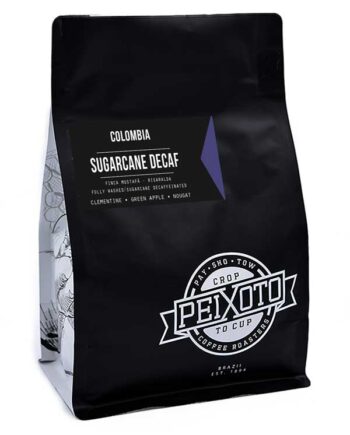Description
The coffee process in the Yirgacheffe region of Ethiopia looks different to other countries. Due to border disputes, plots of land were shifted, limiting farmers. Most farmers are unable to grow coffee and process it on their land. This means farmers pick coffee selectively, harvesting cherries only at peak ripeness. Pickers average 100 to 200 pounds of cherries a day, producing 20 to 40 pounds of coffee beans. Their haul is weighed and paid based on the merit of their work. The day’s harvest is taken to the washing station and the cherries are sold whole.
Because of this separation, the Koke washing station began providing guidance to farmers to increase coffee quality. In a climate with near perfect growing conditions, this made the crops exceed expectations. The demand for products coming from the Koke washing station grew. So, in 2020 they founded a secondary station nearby called the Birbes Kela. Semira Negash owns and operates this station and made a name for herself with a 23rd place rank in the 2021 Ethiopia Cup of Excellence competition. Semira’s ability to operate and place highly made waves in a culture where traditionally men were the primary land and business owners. In fact, 70% of Ethiopia’s coffee workers are women but only 34% of them get an income. Of those women, a leadership role is rare. This makes Semira’s accomplishments stand out as she pushes through traditional boundaries and creates stellar coffee. The Koke and Birbes Kela stations as well as around 1200 smallholder farmers are to thank for the Koke lot and we are excited to see what else comes out of these stations.
Farm details:
Producer: Smallholder Producers
Farm/Co-op: Smallholder Farms
Region: Yirgacheffe
Country: Ethiopia
Altitude: 1800 meters
Process: Honey
Varietal: Heirloom
Flavor profile:
Notes: Pineapple, Blueberry, Rose Hips
Acidity: Medium Plus
Sweetness: Medium
Body: Light Plus
Recommended Brewing Methods:
Fellow Stagg [X]
22g in, 350g out
2:20 – 2:50 minutes
205 f temperature
Medium/coarse grind
Bloom
0-30 seconds
50 gram pour, pick up brewer and spin 3 times
Second pour
30-50 seconds
Pour from 50 grams to 200 grams, starting at 30 seconds and ending your pour at 50 seconds (7.5 gram per second, pour rate)
Let fully drain should be around 2:30
Third pour
1:15 – 1:30
Pour from 200 grams to 350 grams, starting at 1:15-1:30 and ending your pour at 1:35-1:50 (7.5 gram per second, pour rate)
Let drain completely
Final time
Drain should end around 2:20-2:50 minutes or brew to taste
Recommended Espresso Recipe:
Classic 9 bar recipe
20g in, 60g out (22 gram basket)
24-26 seconds
200 f temperature
Espresso grind




